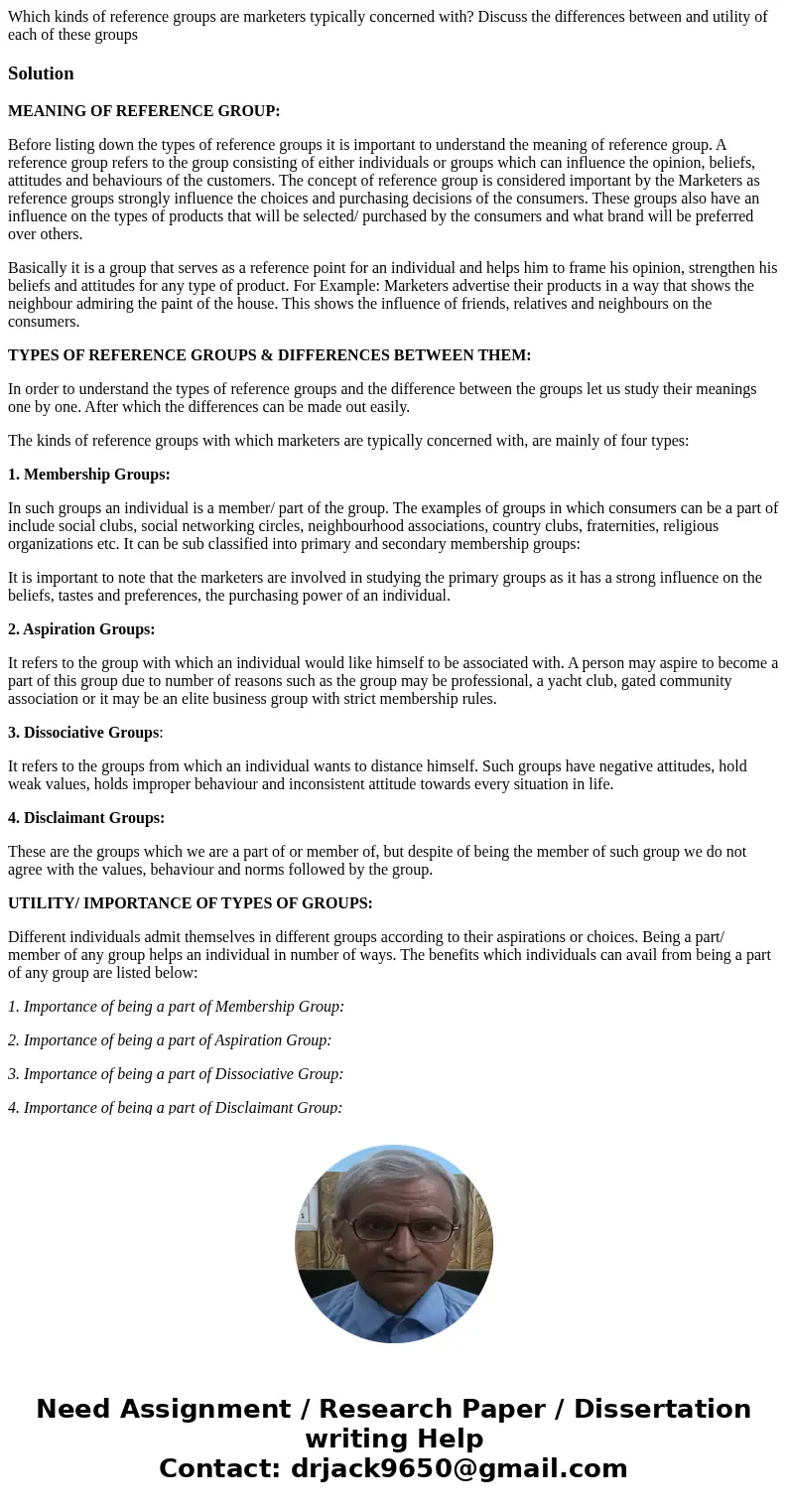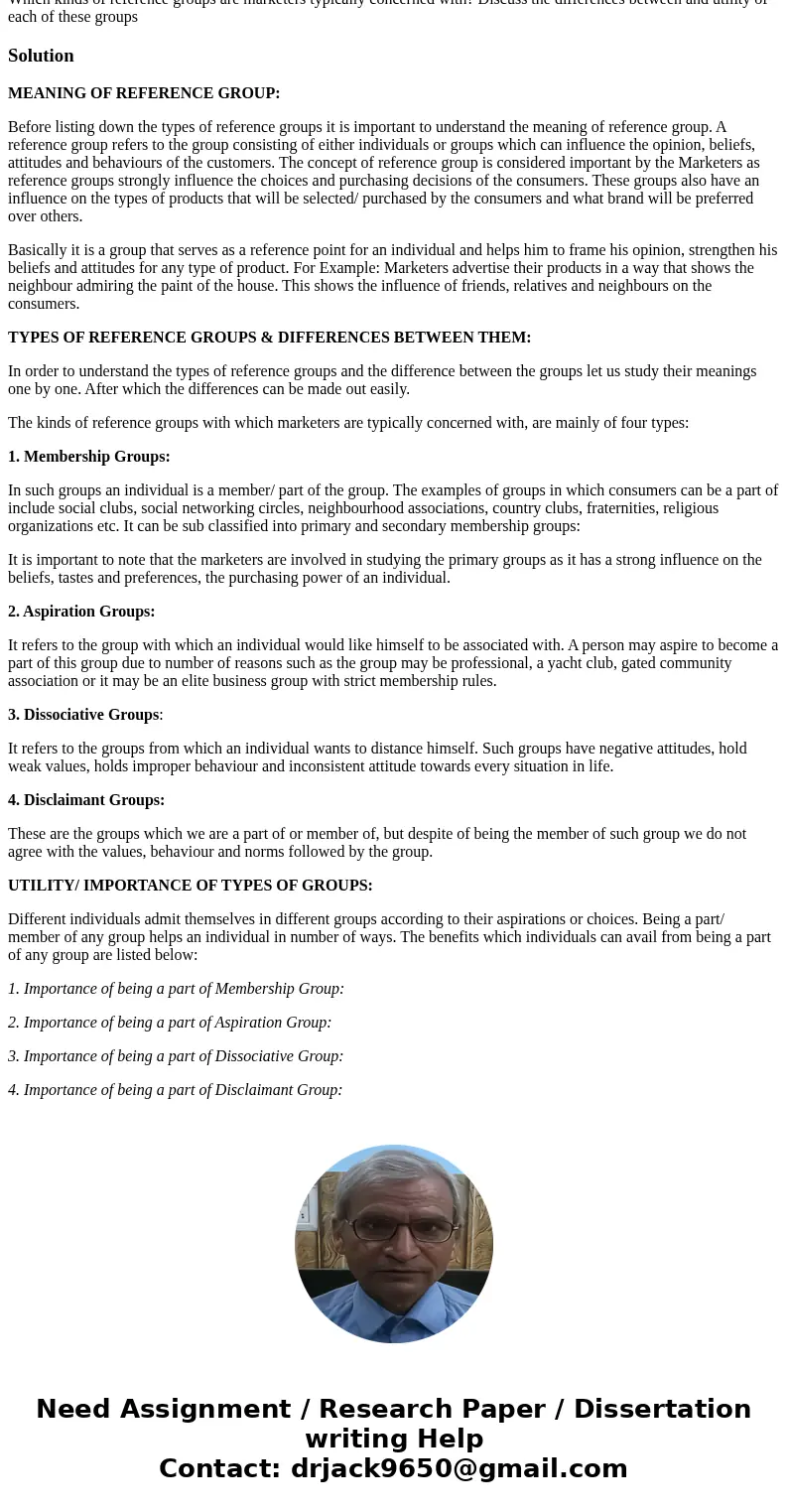Which kinds of reference groups are marketers typically conc
Which kinds of reference groups are marketers typically concerned with? Discuss the differences between and utility of each of these groups
Solution
MEANING OF REFERENCE GROUP:
Before listing down the types of reference groups it is important to understand the meaning of reference group. A reference group refers to the group consisting of either individuals or groups which can influence the opinion, beliefs, attitudes and behaviours of the customers. The concept of reference group is considered important by the Marketers as reference groups strongly influence the choices and purchasing decisions of the consumers. These groups also have an influence on the types of products that will be selected/ purchased by the consumers and what brand will be preferred over others.
Basically it is a group that serves as a reference point for an individual and helps him to frame his opinion, strengthen his beliefs and attitudes for any type of product. For Example: Marketers advertise their products in a way that shows the neighbour admiring the paint of the house. This shows the influence of friends, relatives and neighbours on the consumers.
TYPES OF REFERENCE GROUPS & DIFFERENCES BETWEEN THEM:
In order to understand the types of reference groups and the difference between the groups let us study their meanings one by one. After which the differences can be made out easily.
The kinds of reference groups with which marketers are typically concerned with, are mainly of four types:
1. Membership Groups:
In such groups an individual is a member/ part of the group. The examples of groups in which consumers can be a part of include social clubs, social networking circles, neighbourhood associations, country clubs, fraternities, religious organizations etc. It can be sub classified into primary and secondary membership groups:
It is important to note that the marketers are involved in studying the primary groups as it has a strong influence on the beliefs, tastes and preferences, the purchasing power of an individual.
2. Aspiration Groups:
It refers to the group with which an individual would like himself to be associated with. A person may aspire to become a part of this group due to number of reasons such as the group may be professional, a yacht club, gated community association or it may be an elite business group with strict membership rules.
3. Dissociative Groups:
It refers to the groups from which an individual wants to distance himself. Such groups have negative attitudes, hold weak values, holds improper behaviour and inconsistent attitude towards every situation in life.
4. Disclaimant Groups:
These are the groups which we are a part of or member of, but despite of being the member of such group we do not agree with the values, behaviour and norms followed by the group.
UTILITY/ IMPORTANCE OF TYPES OF GROUPS:
Different individuals admit themselves in different groups according to their aspirations or choices. Being a part/ member of any group helps an individual in number of ways. The benefits which individuals can avail from being a part of any group are listed below:
1. Importance of being a part of Membership Group:
2. Importance of being a part of Aspiration Group:
3. Importance of being a part of Dissociative Group:
4. Importance of being a part of Disclaimant Group:


 Homework Sourse
Homework Sourse